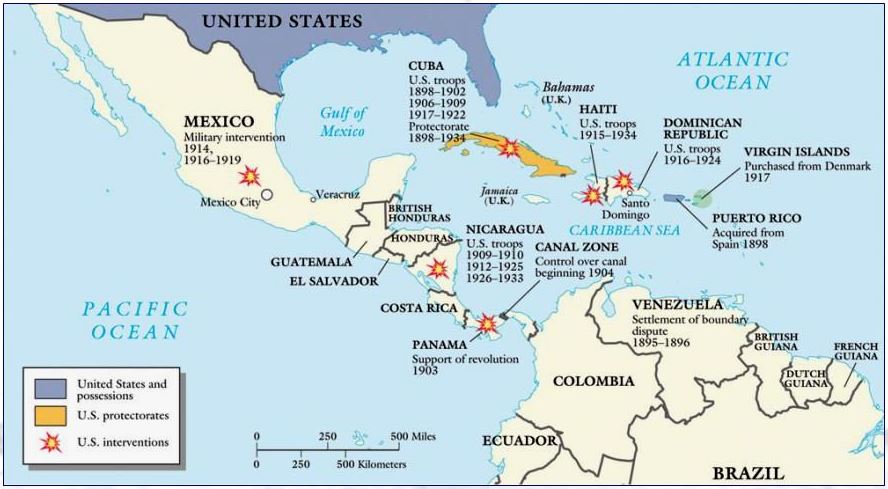Imperialism in latin america
Both industrialization and emerging ideas of nationalism transformed societies, reshaped the global balance of power, and changed how people saw themselves and others. Nations with the capacity and willingness to industrialize gained economic and political power and asserted their influence over others in the form of imperialism promoted by ideas of nationalism. Nationalism also emerged in nations affected by imperialism, manifested in resistance and reaction.
|
"A new consciousness seems to have come upon us - the consciousness of strength - and with it a new appetite, the yearning to show our strength ... Ambition, interest, land hunger, pride, the mere joy of fighting, whatever it may be, we are animated by a new sensation. We are face to face with a strange destiny. The taste of Empire is in the mouth of the people even as the tast of blood in the jungle." Editorial, Washington Post, 1898
"God has not been preparing the English-speaking and Teutonic peoples for a thousand years for nothing but vain and idle self-admiration. No, He has made us adept in government that we may administer government among savage and senile peoples - He has marked the American people as His chosen nation to finally lead in the redemption of the world." Senator Albert J. Beveridge, 1900 |
Unit Goals
|
Essential Questions
Enduring Understandings
Key VocabularyRoosevelt Corollary, Imperialism, Caudillos, Social Darwinism, Exceptionalism, Protectorate, Sphere of Influence, Paternalism, Ethnocentrism, Nationalism, Monroe Doctrine
|
resources
|
|
|
|
Also:
Background on the Guatemalan Coup of 1954 Click Here
19 Ways US Imperialism Has Caused LatinX Immigration to the States to Increase Click Here
19 Ways US Imperialism Has Caused LatinX Immigration to the States to Increase Click Here


